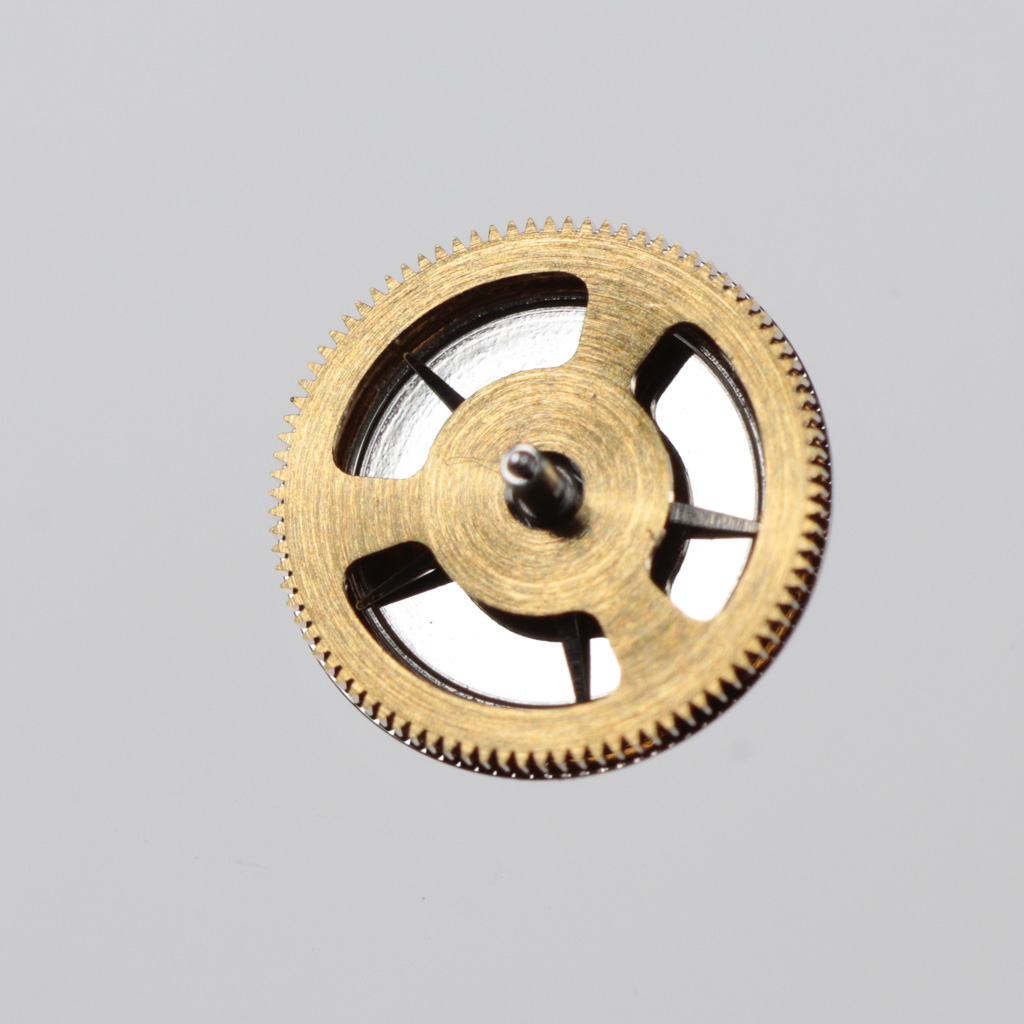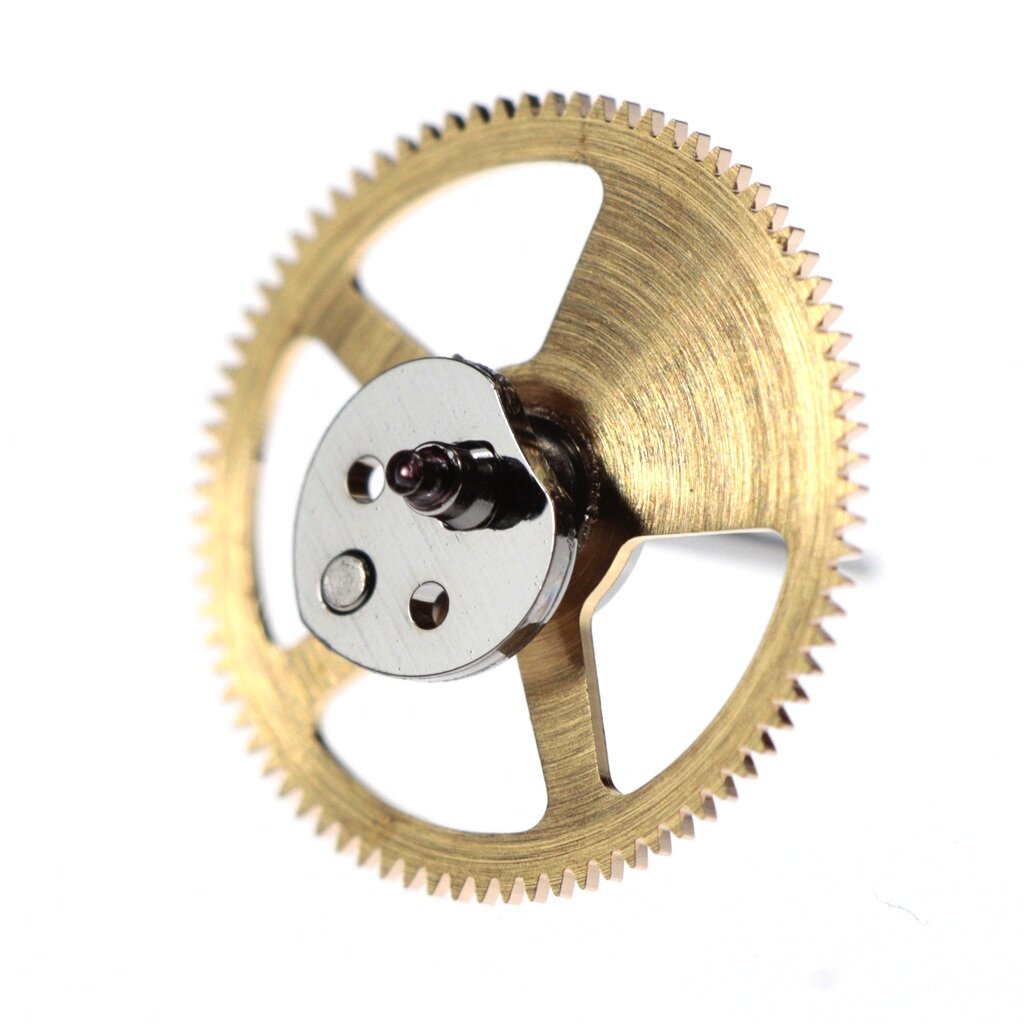The Reason
The VMF 6710 is the most sophisticated chronograph produced today (2018), with conventional time and chronograph indications. The chronograph seconds, minute and hour indications are placed in a horizontal line across the centre of the dial and a constant offset seconds is placed at 6 oclock.
The Seed VMF 6710 balance wheel beats with a frequency of 36,000 vibrations per hour (5Hz) chronometer-certified tenth of a second precision. The four adjustment maslots on the balance wheel allow high-precision regulating. The balance bridge with twin supports improves stability and shock resistance. Vertical-coupling of the chronograph. The clutch is off-centred and drives the chronograph seconds and minutes. The chronograph hours are powered directly by the barrel. Single-piece reset hammer slides across the mechanism to simultaneously reset the chronograph hours, minutes and seconds, acting on the respective heart shaped cams.
Diameter 13 ¼” (30.00 mm) Thickness of 6.95 mm Indications hours, minutes, small seconds, date semi-instant jump, chronograph with center seconds, 30-minute counter, 12-hour counter. Stop seconds Power reserve 65 hours Number of components 315 Rubis 42 Frequency 5hz (36000bph) Balance Variable inertia with gold inertia blocks Balance-spring flat, free sprung Oscillating weight 22 carat gold Oscillating weight winding bi-directional.
The two threaded spacers below the balance bridge allow for vertical micro adjustment of the balance end-shake.
The calibre was developed over a 6 years period; to understand the process click making.
Dial layout
Twenty two carat gold rotor with ceramic (beaded) ball race. The ceramic material negates the need for lubrication and runs smoother than conventional steel on steel ball races. The same system is used in all Vaucher calibres and in other places on the VMF 6710.
The rotor removed, the modular automatic bridge assembly also removed.
Balance cock and free sprung balance spring, balance wheel with four gold maslots for regulation.
The threaded spacers can be adjusted up/down, altering the position of the balance bridge to allow the end-shake of the balance staff to be easily and precisely adjusted. A similar system to that used by Rolex on their recent calibres.
The upper chronograph and rotor bridge, the automatic pinion also pivots on a ceramic ball race.
The upper chronograph bridge removed, revealing the chronograph mechanism.
Pillar wheel to the left. To its right is a multi-purpose spring, the upper level pushes on the operating lever returning it to its default position, it holds down a double finger spring which is linked to the vertical clutch system for the chronograph.
Vertical clutch
Linear sliding hammers, resetting to zero the chronograph wheels.
The un-assembled principle train and chronograph bridge, sandwiched between the upper bridge and mainplate.
Profile views on the remaining automatic wheel and the going train plus hour recorder wheel.
The large flat gold coloured piece in the centre is the hack or brake for the balance which is linked with the setting mechanism.
The hour recorder clutch wheel
The movement disassembled, bridges removed with the trains wheels still in place.
The small steel piece below the barrel is the click for the barrel ratchet wheel to manual release the power from the barrel once the automatic module is removed.
Summary
Chronographs are far more complicated to produce than is commonly recognised. It is easier to make a mass-produced chronograph which is complicated to assemble than a high-quality product which is easily assembled. This movement was simple to deconstruct and re-assemble. Its simplicity in execution combined with the simple but logical positioning of the hands shows a well thought out, developed and executed calibre.
The below film is taken from Vaucher's website.
You can learn more about Vaucher Manufacture Fleurier at www.vauchermanufacture.ch



































